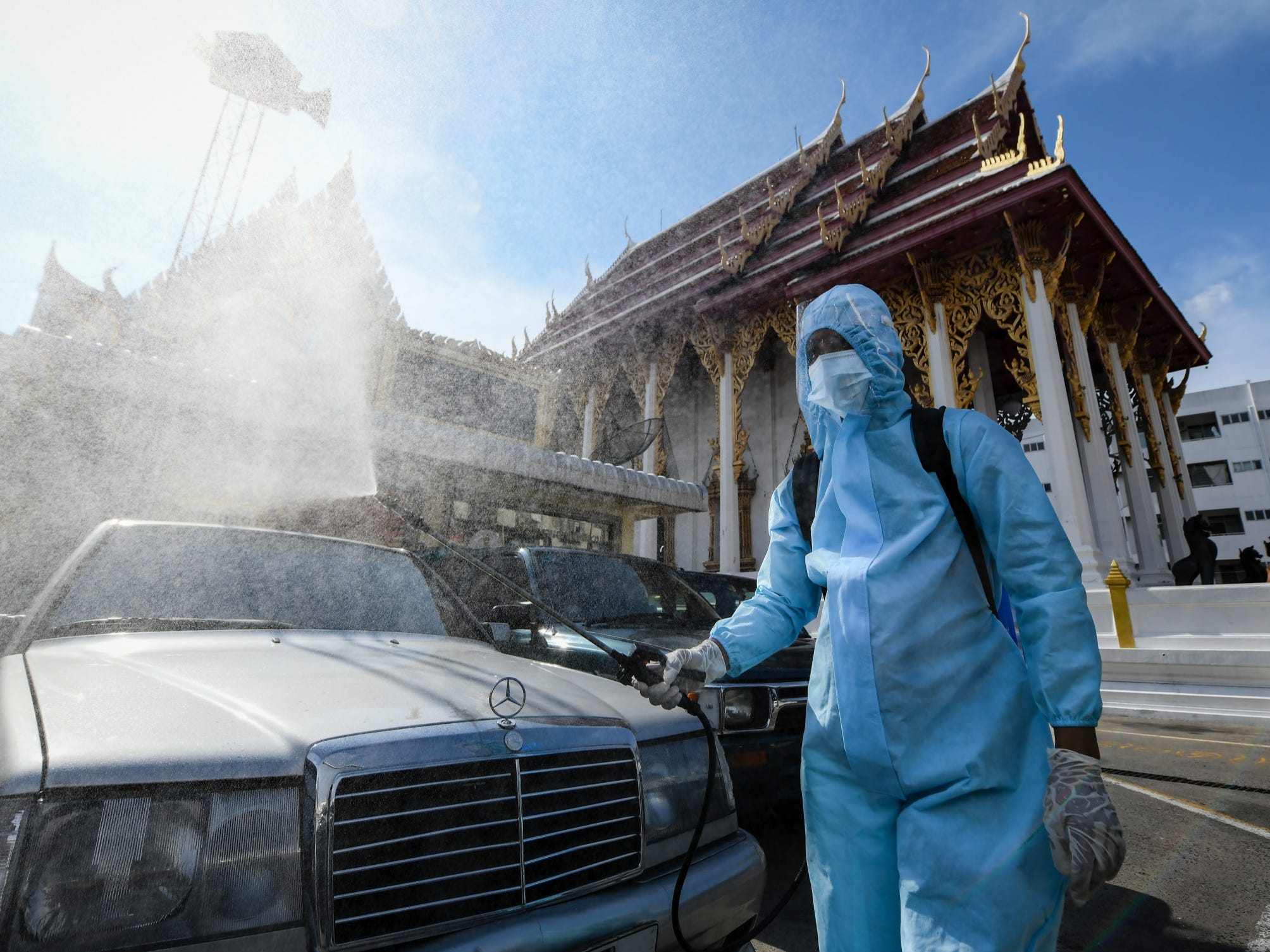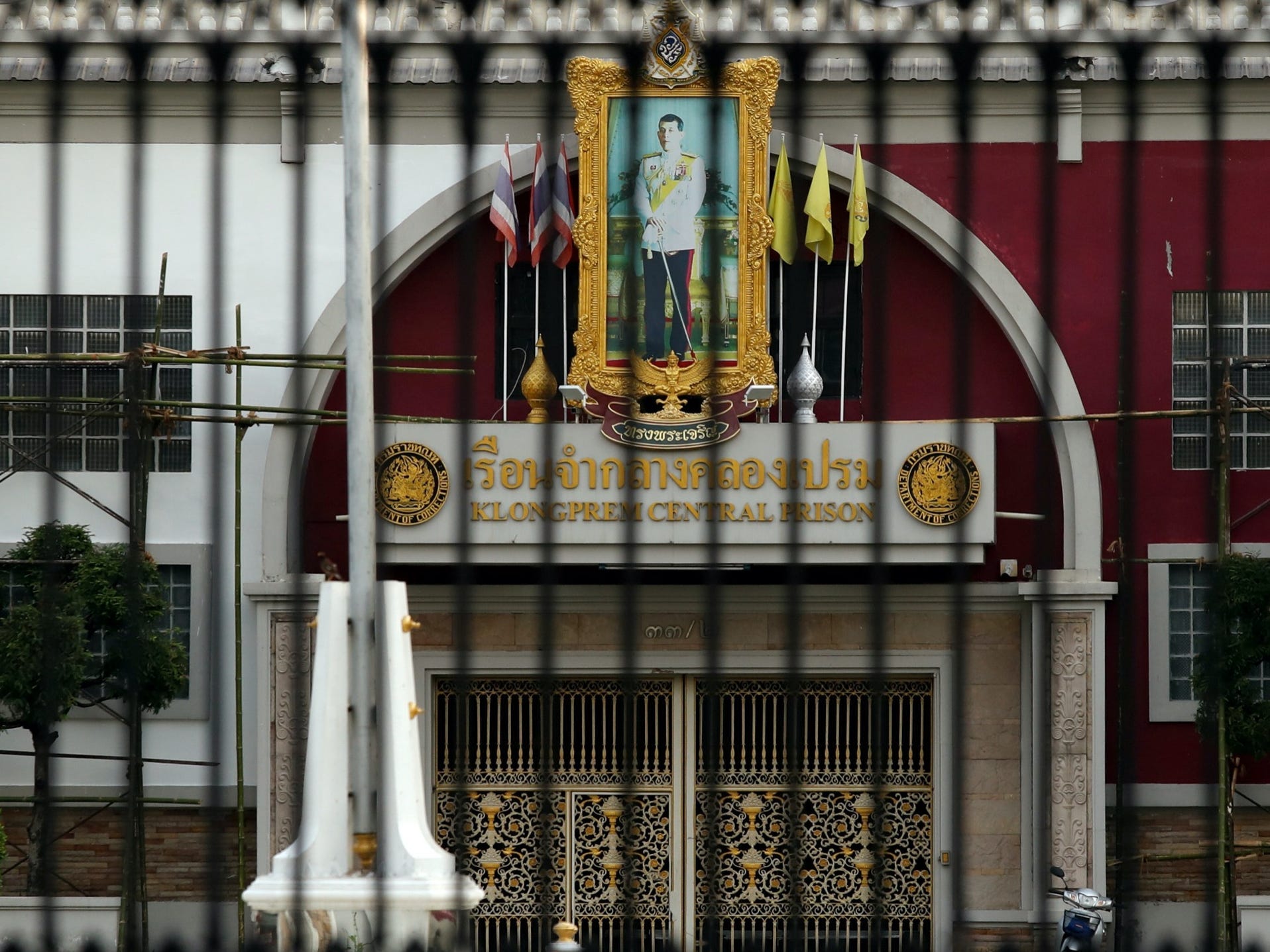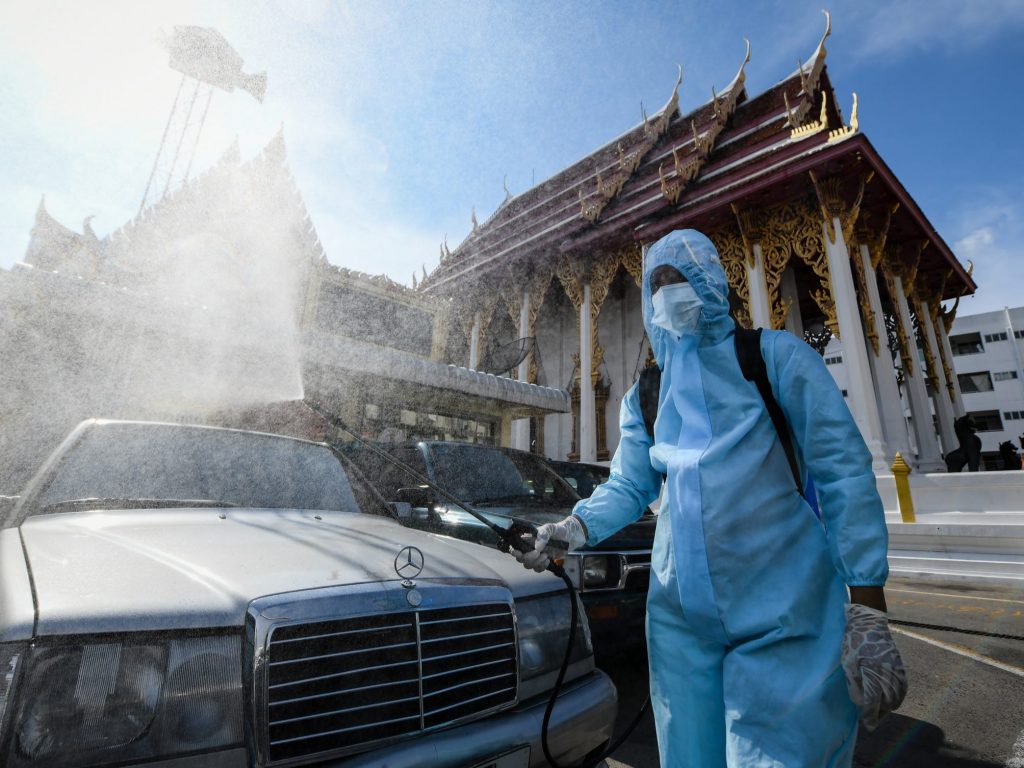
Amphol Thongmueangluang/SOPA Images/LightRocket via Getty Images
- Thailand is considering releasing 50,000 inmates as COVID-19 spreads in its prisons, per Bloomberg.
- The virus has been spreading rapidly in Thailand's prisons; more than 70% of new cases reported Monday were in prisons.
- The move would cut Thailand's prison population by 16%.
- Visit Insider's homepage for more stories.
Thailand is considering releasing up to 50,000 inmates early as COVID-19 spreads in its prisons, Randy Thanthong-Knight reported for Bloomberg on Tuesday.
On Monday, 71% of Thailand's new cases were found in prisons, the Bangkok Post reported. Thailand has now reported more than 13,000 cases in its jails, according to the Post. In one jail in Chiang Mai province, more than 60% of inmates tested in the first half of May were found to be infected with COVID-19, per CNN.
"If we can't get enough vaccines or if we can't contain the spread quickly, we'll have to think about reducing the number of inmates in the system through early release," Thailand's Justice Minister, Somsak Thepsuthin, told Bloomberg. "They're already incarcerated. They shouldn't have to suffer more than that."

REUTERS/Jorge Silva/Files
Thailand has the world's ninth-highest number of incarcerated people per capita, with about 443 inmates for every 100,000 people. The country of nearly 70 million people has about 311,000 inmates, meaning the potential release of 50,000 prisoners would cut prison population by 16%.
The prisons are crowded: Thailand's prison system is only designed to have about 110,000 inmates, according to the World Prison Brief.
In a statement last week, international NGO Human Rights Watch said Thai authorities should "immediately act" to protect the prison population.
"Besides providing health care and virus testing, the authorities should reduce the detainee population through supervised release of those held on politically motivated charges or for minor offenses, or who face greater risk from underlying health conditions," the organization's Asia director, Brad Adams, said.
The justice ministry is ramping up vaccinations for prisoners and correctional officers, Somsak told Bloomberg. Early release of inmates would entail adjusting criteria and could include the use of electronic monitoring systems, he said.
Thailand has seen a spike of more than 70,000 new COVID-19 cases over the past month, bringing its total recorded cases to 113,555 with 678 deaths, according to data from Johns Hopkins University.
Only 1.2% of the population is fully vaccinated, according to Bloomberg's Vaccine Tracker.
Thousands of prisoners globally released early due to COVID-19
Thailand is not the first country to consider releasing inmates early due to COVID-19 outbreaks in prisons, which are frequently overcrowded.
In October, after reporting virus clusters in its prisons, Malaysia said it would release minor offenders who had been sentenced to less than a year in prison and who had less than three months left of their sentence. Experts said in January that should apply to roughly 11,000 inmates.
Indonesia said last March that it would release about 30,000 prisoners early. And European countries including Turkey and Cyprus released more than 100,000 low-risk inmates early, Bloomberg reported last June.

Justin Sullivan/Getty Images
In the US, the world's most incarcerated nation where an estimated one in five prisoners have tested positive for COVID-19, about 23,800 inmates have been released to home confinement over the course of the pandemic, according to Reuters.
Several states decided to grant some inmates early release. California said in March 2020 that it would grant early release to 3,500 inmates as the virus spread through the state's prison system. Five months later, officials said that number could rise to 17,600. Virginia said in October that more than 14,000 prisoners could be eligible for early release. And New York said in March 2020 that it would release about 1,500 inmates.
The New York Times reported in April, however, that "only a handful of states have released more than a few thousand inmates early" in the pandemic.

